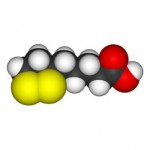the Most health conscious people pay attention to antioxidants and buy antioxidant supplements for one easy reason. they don’t want to feel any older than they have to and choose to enjoy what antioxidants can do for their health . Often though, they might not do everything they want .
What’s the scoop with antioxidants
Antioxidants are the opposite of free radicals. To understand antioxidants , you need to understand how free radicals- rogue electrons- can hurt your health.
Your body is a complex system. It’s a bunch of organs, like your liver and kidneys and your brain , that each does a certain job . Each must perform their role for you to be truly healthy. Your organs are living tissue, composed of countless cells made up of molecules and their component atoms, each with their proper count of electrons. Atoms are tied together into molecules by sharing electrons , but they can become damaged and drop an electron. This produces a free radical and the atom missing an electron will “steal ” it from the closest source , which creates in its turn another unstable atom. What you end up with is a chain reaction that if left on its own , will hurt the cells within the organ tissue and will sooner or later damage the organ.
An antioxidant is a molecule that is able to donate an electron to stabilize a free radical . An antioxidant molecule will not morph into a free radical itself because it will either stay stable with the missing electron or it will be too weak to steal an electron from another atom. The chain reaction is halted . What’s important to understand – to appreciate the scale- is that, according to a well known scientist who studies antioxidants – by the name of Bruce Ames – a cell in your body will be attacked up to 10,000 times in a single day by free radicals. And there are trillions of cells in our bodies.
This onrush by free radicals contributes to (and some will say primarily causes) many of the acute and chronic diseases that we associate with aging. Alzheimers disease, acute and chronic inflammation, coronary disease, cancer, type II diabetes, Parkinsons disease, rheumatoid arthritis and some types of dementia can all be traced back to free radical damage. And thats not the total list.
I believe that it’s actually important to reduce your own production of free radicals, increase your antioxidants and making a decision to purchase antioxidant supplements is one thing you can consider . But it isn’t the whole picture. You should also:
1- Smarten up . It’s difficult to fix the damage when you’re still causing it, so this would be a good time to slow your production of free radicals and there are tons of things you can do to help. You can avoid smoking and smokey rooms , water and air pollution, junk food , substance abuse and even too much exercise.
2- Watch your diet . Eat morefruit and vegetables . Which ones? This list is long but think green foods and think blue foods. Think raw and fresh.
3- Buy antioxidants and antioxidant supplements. Supplements like Vitamins C and E, Resveratrol and Cordyceps are first-class examples of antioxidants supplements that are easy to buy . Do your homework because sources, quality and usability will vary widely, but you can add them as part of your plan.
4- Glutathione is the body’s Master Antioxidant, but not effective as an oral supplement . Oral glutathione supplements apparently won’t survive the digestive system to be absorbed into the bloodstream. Instead you can opt for a Glutathione precursor like Cellgevity. You can also help to support your body’s production of Glutathione by eating more asparagus and broccoli.
